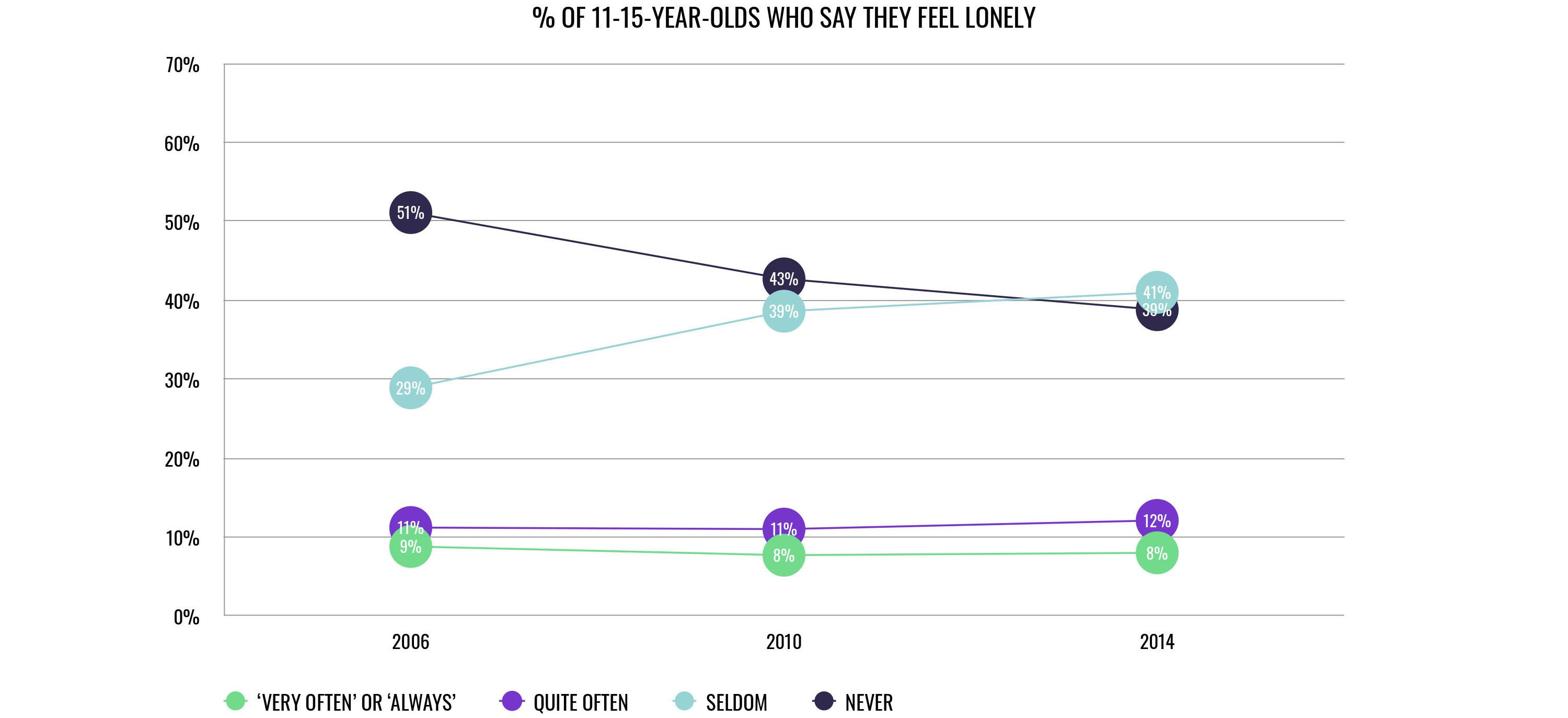
Let's talk about loneliness among young people. Between 2006 and 2014, there was a noticeable rise in the number saying they felt lonely from time to time,and a drop in the number who said they were ‘never’ lonely. And if we fast-forward, the trend doesn't seem to be improving. The same survey in 2022 (with slightly different questions) found that 23% of young people reported feeling lonely in the last 12 months) and in 2023 Childline reported a huge 71% increase in calls about loneliness from under 11s in the last five years.1 While in 2022, a survey by the Prince's Trust found that 30% of young people confessed that they didn't know how to make new friends, and they've never felt more alone.2
We're all unique individuals, and sometimes we crave a bit of solitude away from the hustle and bustle. But young people can also struggle to cope with the very normal feeling of being alone when you’d rather not be. As one 13-year-old put it ‘I think that sometimes it's good to be alone. You don’t want to constantly be surrounded by people. But I think it should be a choice. You don’t want to be alone without wanting to be. It's not a very nice feeling.’3
So while we can't prove a direct link between young people spending more time physically alone (see Chart 3 in this section) and them feeling lonely, it might make us wonder about the depth of connections they can forge online, or their capacity to manage feeling lonely sometimes.
Chart data source:
Qualter P, Hennessey A, Yang K, Chester KL, Klemera E, Brooks F. Prevalence
Social Inequality in Youth Loneliness in the UK. Int J Environ Res Public Health. 2021 Oct 3;18(19):10420
- 1 https://www.cypnow.co.uk/news/article/rise-in-loneliness-among-children-sparks-wellbeing-concerns
- 2 https://www.vice.com/en/article/z3n5aj/loneliness-epidemic-young-people
- 3 https://www.ons.gov.uk/peoplepopulationandcommunity/wellbeing/articles/childrensandyoungpeoplesexperiencesofloneliness/2018